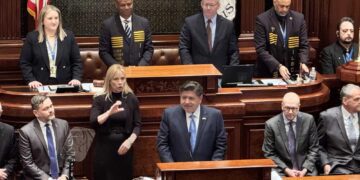The morale of a nation is ultimately a question of spirit rather than matter. James M. Patterson writes:
The publication of God and Man at Yale in 1951 announced an enduring theme of modern American conservatism. In his bestselling book, William F. Buckley, Jr. condemned universities for their failure to preserve traditions of learning in favor of godless preening. The villains of Buckley’s polemic were a callow faculty freeloading off the institutional capital the university had accrued over the centuries. Countless articles and books have made much the same argument ever since. Indeed, conservatism in America itself owed something to the universities and their leftward turn in the decades following World War II.
The social significance of universities changed during the same period, too. Rather than serving as a preserve of the elite, higher education became a middle-class entitlement. Increasing enrollment and growing government funding for large-scale research shifted the balance of power away from the university’s traditional mission with its old-fashioned scholars to a new class of administrators, who pursued institutional efficiency and satisfaction of a wide range of stakeholders.
This distaste for universities in American conservatism has deeper roots, however. Americans have always been puzzled by how to square academic hierarchy inherent in “higher” education with the democratic promise of equality. While intellectual conservatives often defended an elitist conception of the academy, the broader conservative movement was characterized by populist opposition to academic snobbery and suspicion of useless knowledge. These positions sometimes overlap in their opponents, but rarely in their goals. It does not help that so few conservatives, if any, are in the academic hierarchy. As progressives have pushed out conservatives in higher education, they have also undermined broad support for academic institutions. Since they do not have stakes in universities, conservatives have nothing to stop them from embracing populist, anti-intellectual leaders and policies.
[James M. Patterson, "The Time to Fund New Universities Is Now," Law & Liberty, September 27]







